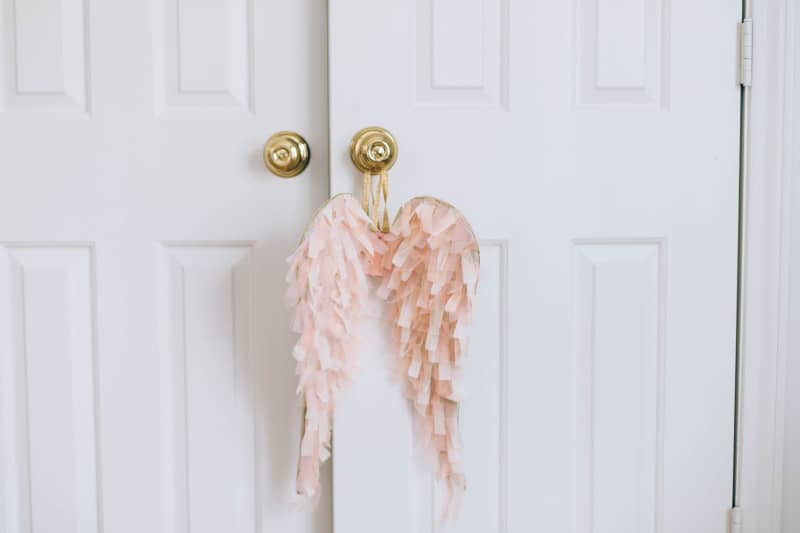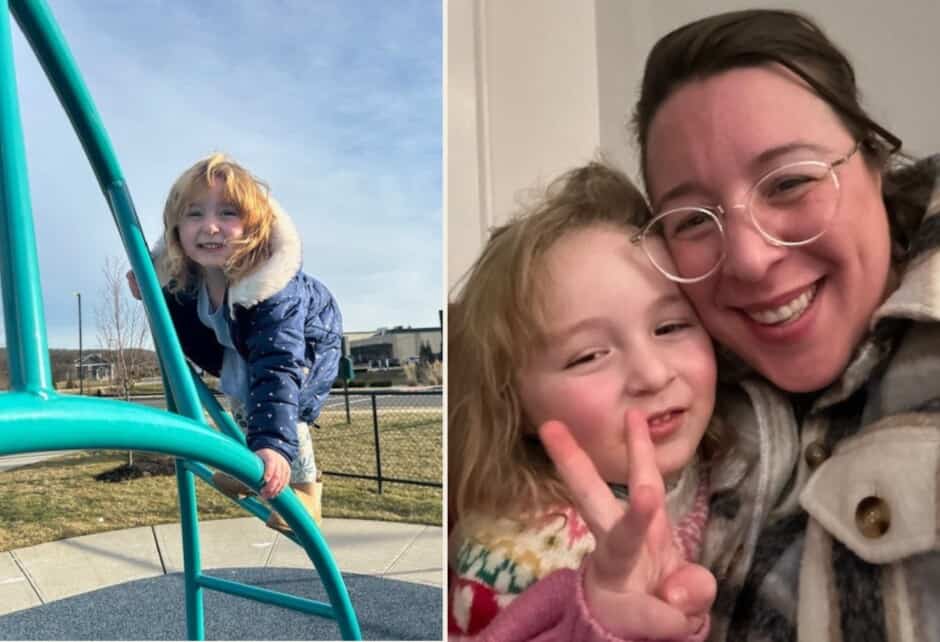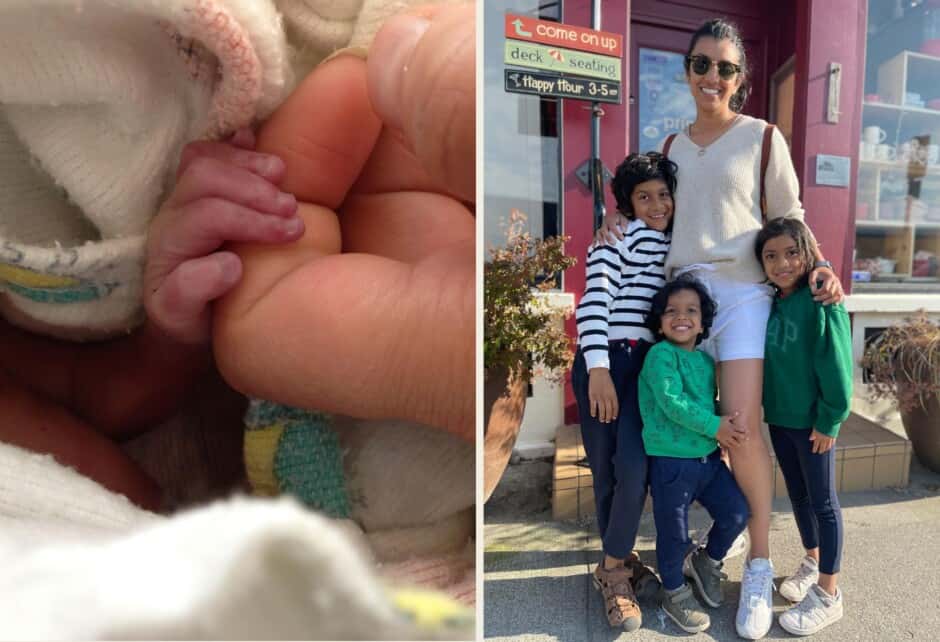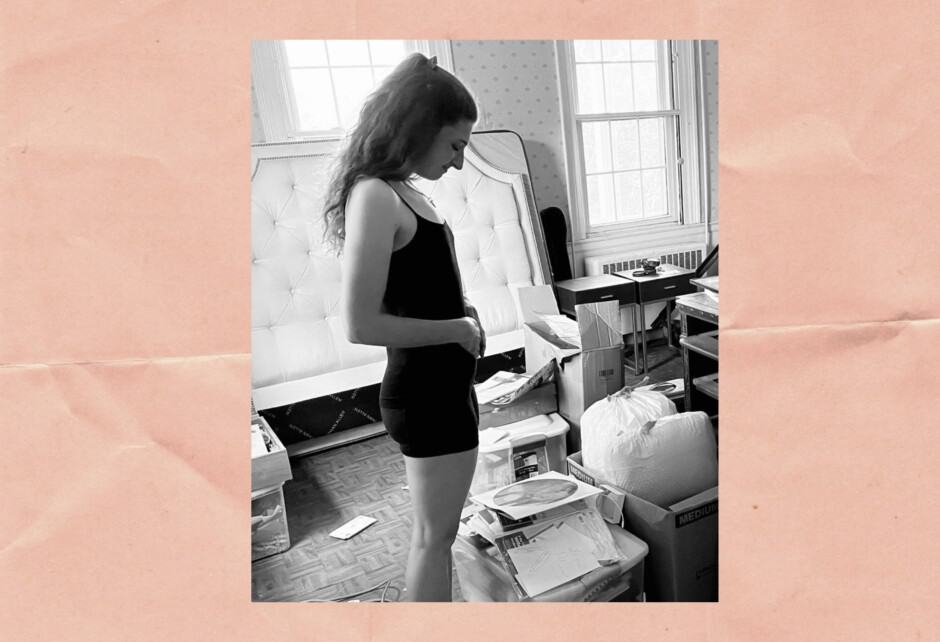
Mom Talk: My Son’s 25-Minute Long Life Changed Mine Forever
Written by Waliya Lari
Photography by PHOTOGRAPHED BY KELLY CHRISTINE SUTTON
In today’s Mom Talk, Waliya Lari bravely and beautifully shares the story of her son Aariz: Her first baby, who was was born fatally premature, at 22 weeks. Waliya shares how her view on motherhood evolved over the years, and how the tragic death of her son gave her a new perspective she is grateful for. Waliya is an award-winning journalist, news producer, and newsroom manager based in Raleigh, North Carolina.
Twenty five minutes—it’s shorter than your favorite T.V. show, the length of most people’s commute, and the time it takes to get ready in the morning. Twenty five minutes is how long my first child lived.
I gave birth to my son and buried him, all in the span of 36 hours. It’s not at all how I imagined becoming a mother. I also never imagined that one person could transform me so completely and wholly. The journey from May 13th last year, when I found out I was pregnant, to May 13th this year, Mother’s Day, to today and beyond was not what I wanted or expected, but it unbelievably made me a better person.
I was never one of those women with maternal instincts or any burning desire to have kids. To me, children were inconvenient life interruptions that sucked you dry of energy, resources, and independence. Oh, and they didn’t give you anything in return for all that sacrifice. No thanks. I’d rather hang on to my career, youthfulness, and freedom rather than trade it away for some stranger who would depend on me for 18 years at best and 50+ years at worst.
Friends told me I would change my tune when I met the right guy and got married. Well, I met and married the man of my dreams. Ismail is also one of those rare guys who adores children—the kind who was born to be a dad. But, the way I felt about having kids didn’t change a bit.
Something in my thinking, however, was starting to shift. The more time my sisters and I spent with my parents, the more I realized how much fun we were having as a family, whether it was vacationing in some far off place or just gossiping at home over breakfast, and I wanted that in my older years. I envisioned my life 25 years from now including adult children telling me I’m eating too much dessert and explaining the latest befuddling pop culture trends. The love, camaraderie, and support of adult children is so critical the older you get. While my heart had no emotional desire to procreate and raise children, logically, I was there. My brain had convinced me that having children was a work-intensive investment that would pay off in the long term.
As we started trying to get pregnant, every month was an intensely emotional game of roulette—except I didn’t know where I wanted the tiny ball to land. I was freaked out about getting pregnant despite being nearly 35 years old. The thought of being a mother was frighteningly overwhelming—I just wasn’t ready for the responsibility to put the needs of another person before mine. I was also freaked out about not getting pregnant because I just couldn’t handle having to deal with all the costs of infertility: financial, emotional, and physical. I couldn’t win either way. Every month, on the day I realized I wasn’t pregnant, I was filled with equal parts relief, anxiety, and disappointment.
After a year of trying and one round of fertility shots, I was pregnant. As my husband celebrated, I forced a smile, while inside I filled with a dread of the unknown. The roulette wheel had finally stopped spinning and I had won the jackpot, but now that it was a reality I wasn’t really sure I wanted it.
I was afraid I was going to be a terrible mother—I didn’t know what I was doing! I was afraid this child was going to change my life too much and leave me with a life full of regret and unwilling sacrifice. I was afraid the pregnancy would morph my body into unseemly shape. I was afraid people (mostly female relatives) would deem it their right to get overly involved in life, issuing mandatory edicts on how to be pregnant and how to raise a child. And there’s truly nothing I hate more than people telling me what to do.
I was fortunate that my pregnancy was physically very easy, but emotionally I was a mess. I was so scared of having a child, and honestly weirded out by the fact that another human was growing inside of me, that I took no pleasure in being pregnant. I just wanted to pretend like it wasn’t happening. It was easier to hide from the anxiety than deal with it. As my husband waxed poetic about how amazing our child was going to be and how much fun we were going to have, I avoided talking about being pregnant and our future baby. I made no adorable announcement on social media. I didn’t take any pictures showing off my growing belly. God help me if anyone touched it or talked to it. Ultrasounds made me cry; not out of joy but out of fear.
I knew deep down, under the layers of fear, anxiety, and doubt, I really wanted this baby and already loved him or her. I just had to bring those feelings to the surface. So, like any respectable Type-A personality, I set off on a mission to conquer the crippling anxiety that was growing in sync with my waistline.
I began with my therapist who helped me realize my fears were normal and reasonable. Then I started raiding the baby section at stores—I mean really, is there anything more adorable than tiny human clothes? A hoodie that turns your baby into a dinosaur…tiny skinny jeans with an even tinier cardigan…organic cotton onesie with a matching hat…yes, yes, and yes, I will take them all! I also spent hours upon hours researching our baby registry—bassinet or mini crib? Tommee Tippee or Comotomo? Swing or bouncer or both? After meticulous research, I had compiled the ultimate registry, 150+ things including an $1,100 stroller. Only the best for our baby. And it worked! When the 20-week ultrasound rolled around and we saw the precious hands and feet, a cute little face and that it was a boy (!), I still teared up, but they were tears of happiness. The doctor said our son was perfect and the pregnancy was healthy. I was halfway to being a mom and I was ready, mildly excited, and even letting my husband talk to my belly.
Our next ultrasound was in the ER. It left me sobbing and in despair.
At 22 weeks, I was in preterm labor. The doctor delivered the news as kindly as he could—in just a matter of hours our son would be born and, because a baby’s lungs don’t fully develop until 24 weeks, he would survive for only minutes.
More than once the doctor asked if we had picked a name yet. It was really more of a strong suggestion than a curious question. We hadn’t, and at this point I didn’t want to name him. Naming him made it real. Made it real that we were going to have a child who died. As my mind transitioned from shock to survival, I wanted this to just be some medical procedure—something was wrong with me and the doctors and nurses were going to cure me. I couldn’t handle the idea of losing a child. This was my son, I was supposed to grow old with him. I wasn’t supposed to bury him before I even got to know him. The idea of being broken by the pain and trauma of having your child die in your arms was beyond comprehension. Maybe if I didn’t name him or meet him or have any memories with him, it would be as if he never existed. That would make it so much easier to heal physically, emotionally, and mentally, and just move on to getting pregnant again.
At my husband’s gentle and sorrowful insistence, we picked a name. We didn’t have time to vet it the way we had planned, but ever since we stumbled across the name Aariz we couldn’t get it out of our heads. The baby name website told us it meant intelligent and leader. So, Aariz it was.
The hours of labor were a devastating mix of shock, anguish, heartbreak, and mourning. The delivery, while very short, was chaotic, terrifying, and utterly disheartening as any last hope of a better fate began to evaporate. But the minute Aariz entered the world, it stood still. As the doctor handed him over to us, my husband and I gasped with joy; forgetting for a fleeting moment that this wasn’t just the beginning of a new life, but rather the beginning of the end. The doctor and nurses were solemnly silent, as if already in mourning. My mother, who flew halfway across the country, miraculously made it in time to hold her first grandchild. The baby, without the lungs that could have kept him alive, made only a few muffled sounds. In the quiet stillness of the delivery room, we held Aariz and softly spoke to him; in awe of this miracle of life and in anguish knowing our time together was quickly coming to an end.
About 25 minutes later he was gone. With our blessing, the nurses slowly wheeled out his body, which would go to the morgue instead of the nursery. The two of us were left there not knowing what to say to each other, let alone knowing what we would do next or where our lives would go from there.
In the weeks that followed, I started to see how those 25 minutes transformed me into a mother in ways I would not have imagined months earlier. This new side of me manifested in a variety of ways, some expected, others unexpected. Like any parent, I was proud of my son and wanted to make sure everyone knew just how perfect and healthy he was. I shot down any notion that this was just a miscarriage or that he may have had some sort of deformity that caused this. I proudly talked about how he was perfectly developed on the inside and outside, and how he was 11.5 inches and 1 lb 2oz, over performing what all those gestation calendars say a baby should be at 22 weeks. I stopped short of showing people his pictures, realizing only the parents can truly see the beauty in the pictures of a super preemie like Aariz. I wanted everyone to know that he was a baby who was born and lived, even if just for a short time. The idea that he may not be known or be forgotten is more painful than remembering that he died so quickly.
I am protective of him in the few ways I can be. He was buried on a hot September afternoon, and as we waited for the funeral to begin, I stood in way that cast my giant shadow over his tiny body. I didn’t want him to feel hot or get a sunburn on his delicate translucent skin. Months laters, as winter’s first freeze hit, I worried about him being cold in his tiny grave. In the spring, as the flora in the cemetery came back to life, I took a pair of scissors and cut all the overgrown greenery on and around his pillow case sized grave. I didn’t want his only home on this earth to be a messy one. I know this is all irrational, but how can a mother not worry about her baby?
There were more frivolous changes, too. Before the birth, I’d check out the hair, makeup, clothes, and accessories of other women. Now I’m checking out their infant car seats, feeding bottles, baby bags, and how they dress their children. And I’m obsessed with high-end strollers. I look at them with the same covetous glances once reserved for checking out good-looking guys back.
On Thanksgiving, about nine weeks after Aariz’s birth, I realized I was grateful for him. Not grateful for his death or that he was gone, but for the blessing of having him in my life for a short moment and for the ways that it changed me for the better. I’m a kinder, gentler, more considerate person. I’m filled with so much more gratitude—it’s amazing how a traumatic loss can make one truly appreciate the blessings we usually take for granted. I’ve changed my priorities in ways that are more true to who I am rather than what I thought I needed to be: spending more time with my parents and sisters, reconnecting with my spirituality, and taking a more holistic approach to life. I even quit my job because it no longer fulfilled me, especially compared to the fulfillment I felt from the idea of motherhood and my experience with it. Who knew such a tiny person could have such a huge impact?
Obviously, it’s not all great. The trauma and pain of what happened will linger for a long time. I have panic attacks at weddings and other big parties, afraid that I’ll never find joy in my life again. Anytime someone asks my husband and I if we have kids, it’s a punch in the gut that knocks the wind out of us. We decided early on our answer would be “not right now”—it acknowledges that we had a child at one point, but doesn’t get into the whole story with someone we just met. A few friends had babies around the same time as my original due date. We haven’t seen those babies or even acknowledged their births. It’s just too painful of a reminder of what we were supposed to have. And every time I look at myself, the 20+ pounds I gained from the fertility treatments and pregnancy are a taunting reminder of how my body has failed to perform its most basic function.
That may be the hardest part of all this: being a mother without a child. It’s like a phantom limb—sometimes I swear I can feel him moving in my belly. Still, I wouldn’t trade all the pain for never having had my first son. He made me into something I didn’t even know I aspired to be. I just wish he was here to enjoy the ways he transformed me into a mother. I’m not a regular mom—I’m not a boy mom or a mom of multiples or a #instamom. I’m an other mother, one whose entire motherhood is made up of just a few short memories.
Many believe that the meaning of your name is a guiding force in who you’ll become as a person. In the Quran, the word “aariz” is used to describe a rain-bearing cloud; rain being a blessing from God that makes things grow. And that’s exactly what Aariz was—a blessing that allowed me to grow in so many ways as a person. And while he didn’t get to grow up, he was a small person who sure did accomplish a whole lot in that short little life.
Are you a mother with something to say? Send us an email to be considered for our “Mom Talk” column.
Write a Comment
Share this story




Words can’t suffice how touched I am by this article. I’ve had friends lose children and this gives me a small glimpse of what they experienced. Thank you for sharing your story, what a gift your son was and continues to be as you spread awareness, compassion and empathy with all that your family has endured.